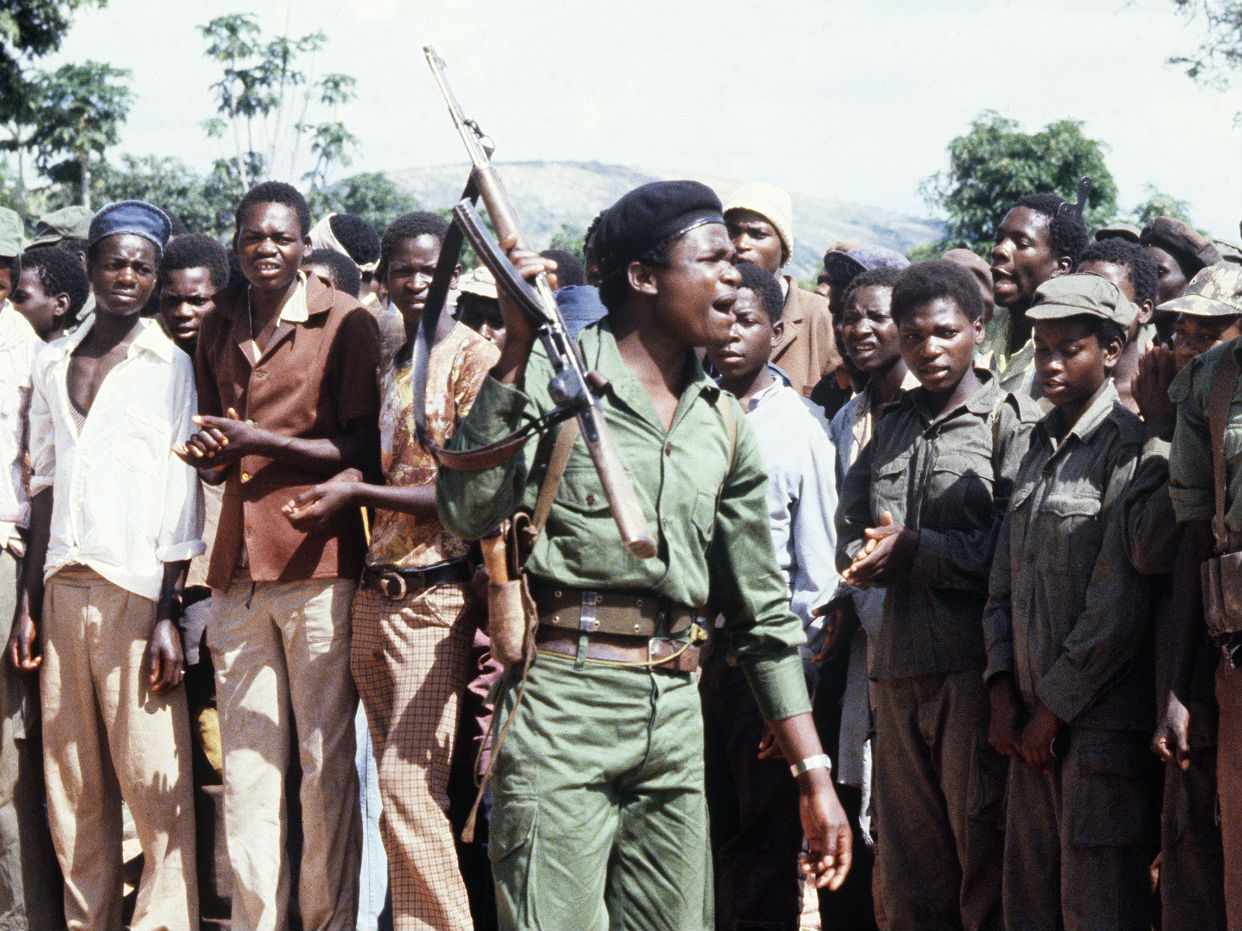UK downplayed Robert Mugabe massacre in Zimbabwe
Officials in London accused of ignoring massacre of thousands of dissidents throughout the 1980s

A free daily email with the biggest news stories of the day – and the best features from TheWeek.com
You are now subscribed
Your newsletter sign-up was successful
British officials deliberately downplayed the massacre of thousands of Robert Mugabe's opponents in Zimbabwe in the 1980s, newly released documents have revealed.
Who did what?
Mugabe swept to power in what was then Rhodesia in 1980, when his Zanu-PF party won more than 60 per cent of the vote in elections that followed years of bloody struggle against minority white rule.
The Week
Escape your echo chamber. Get the facts behind the news, plus analysis from multiple perspectives.

Sign up for The Week's Free Newsletters
From our morning news briefing to a weekly Good News Newsletter, get the best of The Week delivered directly to your inbox.
From our morning news briefing to a weekly Good News Newsletter, get the best of The Week delivered directly to your inbox.
However, the man hailed by western liberals as a freedom fighter began a brutal security clampdown against his political opponents.
Spearheaded by the so-called Fifth Brigade, a group of fanatically loyal pro-Mugabe militias who had been trained in North Korea, the crackdown targeted ethnic minorities and areas loyal to Mugabe's political rival Joshua Nkomo.
Over a nine-month period in 1983, it is believed the brigade raped, tortured or killed between 10,000 and 20,000 unarmed civilians.
And who knew what?
A free daily email with the biggest news stories of the day – and the best features from TheWeek.com
Thousands of documents obtained under the Freedom of Information Act show that British officials in London and Zimbabwe knew of the atrocities but sought to minimise their scale, writes The Times.
"The British government could have influenced authorities in Zimbabwe but put political and economic interests first... There were steps they could have taken and they chose not to," said Dr Hazel Cameron, a lecturer in international relations at the University of St Andrews who requested the files.
Messages between Robin Byatt, then high commissioner in Harare, and officials in the Foreign Office stress Zimbabwe's importance as a major investment and trading centre in southern Africa and the need to preserve "British and western economic and strategic interests".
They also insist on "the need to avoid a mass white exodus" while continuing to support Mugabe "as a bulwark against Soviet inroads" in the region.
Declassified documents also show Canadian prime minister Pierre Trudeau, father of Prime Minister Justin, urged a "very broad and soft" approach when dealing with Mugabe for fear of turning public opinion against the newly independent country.
Has anyone ever been held to account?
According to The Guardian, none of the perpetrators of the massacre has ever faced trial and "those implicated include many who are now senior political figures in Zimbabwe".
Mugabe this year celebrated his 93rd birthday, having been in power for 36 years.
-
 The broken water companies failing England and Wales
The broken water companies failing England and WalesExplainer With rising bills, deteriorating river health and a lack of investment, regulators face an uphill battle to stabilise the industry
-
 A thrilling foodie city in northern Japan
A thrilling foodie city in northern JapanThe Week Recommends The food scene here is ‘unspoilt’ and ‘fun’
-
 Are AI bots conspiring against us?
Are AI bots conspiring against us?Talking Point Moltbook, the AI social network where humans are banned, may be the tip of the iceberg
-
 Epstein files topple law CEO, roil UK government
Epstein files topple law CEO, roil UK governmentSpeed Read Peter Mandelson, Britain’s former ambassador to the US, is caught up in the scandal
-
 Iran and US prepare to meet after skirmishes
Iran and US prepare to meet after skirmishesSpeed Read The incident comes amid heightened tensions in the Middle East
-
 Israel retrieves final hostage’s body from Gaza
Israel retrieves final hostage’s body from GazaSpeed Read The 24-year-old police officer was killed during the initial Hamas attack
-
 China’s Xi targets top general in growing purge
China’s Xi targets top general in growing purgeSpeed Read Zhang Youxia is being investigated over ‘grave violations’ of the law
-
 Panama and Canada are negotiating over a crucial copper mine
Panama and Canada are negotiating over a crucial copper mineIn the Spotlight Panama is set to make a final decision on the mine this summer
-
 Why Greenland’s natural resources are nearly impossible to mine
Why Greenland’s natural resources are nearly impossible to mineThe Explainer The country’s natural landscape makes the task extremely difficult
-
 Iran cuts internet as protests escalate
Iran cuts internet as protests escalateSpeed Reada Government buildings across the country have been set on fire
-
 US nabs ‘shadow’ tanker claimed by Russia
US nabs ‘shadow’ tanker claimed by RussiaSpeed Read The ship was one of two vessels seized by the US military